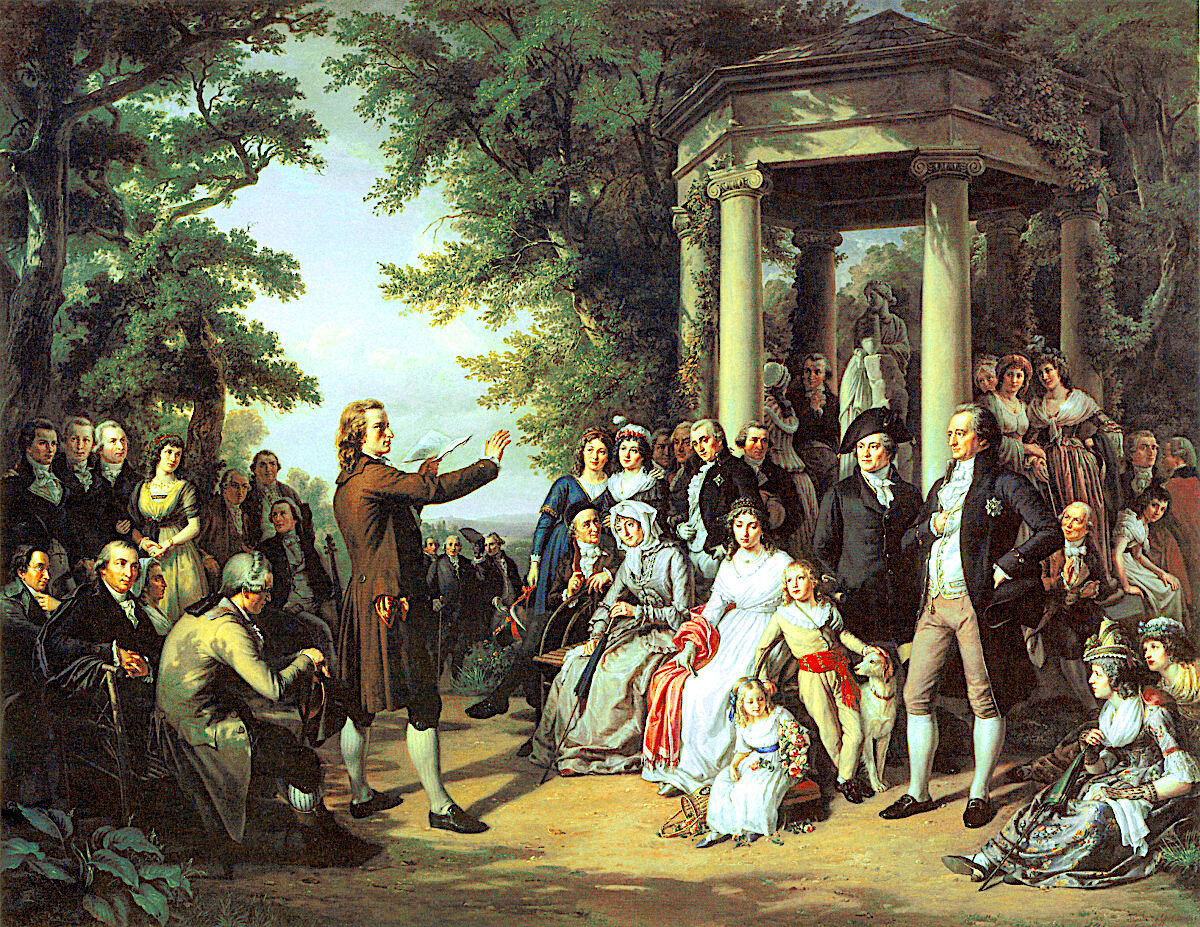French cultural leadership in the eighteenth century was preeminent. The key concepts of the eighteenth-century philosophes, or intellectuals, were reason, natural law, and progress. Philosophes, who expressed optimism in human abilities to apply reason, owed a debt to John Locke for their ideas on government and human psychology.
Under the direction of Diderot, philosophes produced the thirtythree-volume Emyclopédie, advancing views of progress and reason, exposing superstition and ignorance, and denouncing inequality in the light of natural law and science.
Francois Quesnay and Adam Smith summed up the economic principles of those philosophes known as Physiocrats. The Physiocrat’s program of laissez faire, or “let nature take its course,” clashed with traditional mercantilist doctrines.
In justice and education, philosophes sought reforms based on reason and natural law. They championed tolerance and attacked superstition. The well-known philosophe Voltaire professed belief in God but rejected intolerance and furthered deist doctrine.
Like many other philosophes, Montesquieu in The Spirit of the Laws (1748) expressed admiration for British ideas on government. In The Social Contract (1762), Jean- Jacques Rousseau set out his theory of the general will to reconcile the needs of the individual and the institution of government. Rousseau’s ideas have formed the basis of radical political doctrines ever since.
Enlightened despots of the period displayed a mix of Enlightenment ideas and absolute monarchy. Frederick the Great read the works of philosophes and promoted Physiocratic ideas in agriculture. But he rejected laissez- faire ideas. In religion and social policy, he inaugurated a measure of tolerance and supported judicial reforms but did not move to reduce social inequality.
Joseph II of Austria, Charles III of Spain, as well as rulers in Portugal and Sweden instituted enlightened reforms. However, the successors of these enlightened rulers did not continue their programs.
In Russia, Catherine was an absolute autocrat who liked the idea of reform. She tried to codify laws based on enlightened ideas, reorganized local government, and introduced some municipal reform. But under Catherine, serfdom grew as the nobility gained increased authority over their serfs.
Czar Alexander I had absorbed enlightened ideas but was hesitant and accomplished little despite good intentions. Russia continued its expansionist foreign policy. Catherine annexed the Crimea and participated in the partitions of Poland.
In Britain, George III, stubborn and shortsighted, tried to reassert royal prerogative. After the Seven Years’ War, a breach divided Britain and its North American colonies. Colonists’ resistance to Britain’s attempt to raise revenue in North America resulted in the issuing of the Declaration of Independence on July 4,1776.
With French help, the colonists won their independence, which was recognized in 1783 at the Peace of Paris. The successful revolt of the American colonists weakened the power and prestige of George III. The Declaration of
Independence appealed to the laws of nature described by Locke, while the new Constitution of the United States
reflected Montesquieu’s ideas on the separation of powers.
Philosophes failed to take into account the complexities of human nature. Their appeals to the laws of
nature and reason did not reform states. David Hume and Immanuel Kant reflected the philosophic reaction to
rationalism. Popular reaction to the Enlightenment was expressed in German Pietism and the Methodist movement in England.
A new type of fiction appeared in the works of Daniel Defoe and the social novels of Henry Fielding. In Germany, Goethe’s Sorrows of Young Werther embodied the frustration of the Sturm and Drang movement. Neoclassicism influenced the arts, but the age of romanticism was foreshadowed in the growing taste for the oriental, natural, and Gothic.

